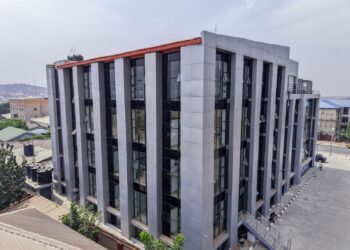Dr. Bosun Tijani, the Minister of Communications, Innovation, and Digital Economy, has revealed that the launch of an extensive N3.3 trillion infrastructure project, encompassing 90,000 kilometres of fibre optic lines and 7,000 telecom towers nationwide, is scheduled to begin in the fourth quarter of 2025.
He highlighted the impressive growth of the telecommunications sector under President Bola Tinubu, with Foreign Direct Investment (FDI) surging to $191 million in Q1 2024, a remarkable rise from $22 million during the same quarter in 2023.
Additionally, Finance Minister Mr. Wale Edun stressed the critical importance of the capital market in fulfilling the federal government’s vision of achieving a $1 trillion economy by 2030.
Senator Abubakar Bagudu, the Minister of Budget and Economic Planning, confirmed that the economic reforms initiated by Tinubu’s administration are on track and yielding significant results.
Analysts, meanwhile, predict a stable monetary policy as the Monetary Policy Committee (MPC) of the Central Bank of Nigeria (CBN) prepares to announce the results of its latest two-day meeting.
Dr. Tijani shared these insights during an interview for a documentary celebrating President Tinubu’s second anniversary, emphasising the importance of workforce development in the sector, particularly through the Three Million Technical Talent (3MTT) programme. He also unveiled a $2 billion initiative aimed at deploying the extensive fibre optic infrastructure, commencing in Q4 2025.
He stated, “These foundational reforms, in conjunction with advancements in artificial intelligence (AI) and the startup ecosystem, have positioned Nigeria as a leader in the digital economy.”
In terms of FDI, Special Adviser to the President Bayo Onanuga noted a significant increase from $22 million in Q1 2023 to $191 million in Q1 2024, with continued growth into Q2.
The Minister emphasised the achievements of the 3MTT programme, which, since its inception in October 2023, has trained over 117,000 Nigerians in digital skills, far exceeding its original goal of 30,000.
He expressed hope of reaching the target of three million trained individuals by the end of his tenure. On connectivity, Tijani announced the initiation of Project Bridge, which will deploy 90,000 kilometres of fibre optic cable in the fourth quarter of this year.
“We are preparing a $2 billion investment to ensure that all Nigerians have access to affordable, high-quality connectivity, regardless of their location. A mere 10% increase in connectivity hubs could lead to a 2.5% growth in GDP,” he explained.
Tijani celebrated Nigeria’s recognition among the top 60 countries for AI readiness and the successful development of a homegrown large language model (LLM). He also announced the launch of the AI Collective platform, supported by notable partners including Pierre Omidyar, Google, and Microsoft, aimed at fostering innovation in AI.
The ministry has also funded 55 academic researchers to explore technology applications in agriculture, healthcare, and education, while investing N300 million in 10 startups using AI and blockchain to enhance agricultural productivity.
On the Nigeria Startup House in San Francisco—targeting $5 billion in startup funding—Tijani stated, “Our aim is to attract $5 billion in investments for Nigerian startups, supported by the Startup Pact and Trade Desk initiatives that link local tech firms to global opportunities and government procurement.”
He revealed that over 500 government technologists have been trained in AI and Digital Public Infrastructure (DPI), and the groundbreaking Digital Economy Bill has passed its first reading in the National Assembly.
To address rural connectivity gaps, the Minister projected the deployment of 7,000 telecom towers, targeting 98% nationwide coverage, with the Federal Executive Council already approving the initiative.
He described progress on Right-of-Way issues as transformative, revealing that 12 states have adopted zero-rated Right-of-Way policies.
These efforts are anticipated to support the National Broadband Plan’s goal of achieving 90% penetration by 2025, up from 48% in 2024.
He expects the sector’s GDP contribution to rise from 16% to 22%, asserting, “If a sector can increase its contribution to GDP by three to four percent, we are on the cusp of unprecedented economic growth. Technology enables us to bridge the gap between the government and the populace.”
Tijani affirmed that the government is focused on sustainable reforms rather than immediate gains, stating, “We aim to provide long-lasting reforms that will transform our economy for decades to come.”











